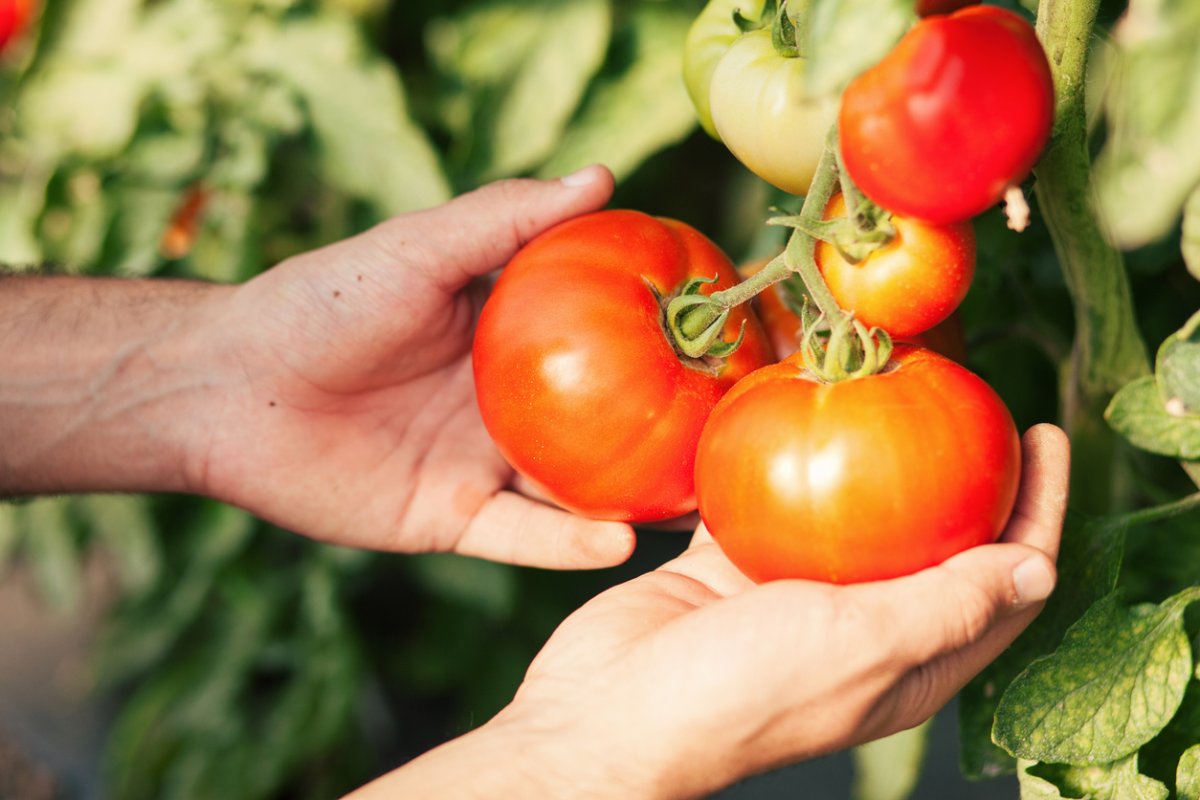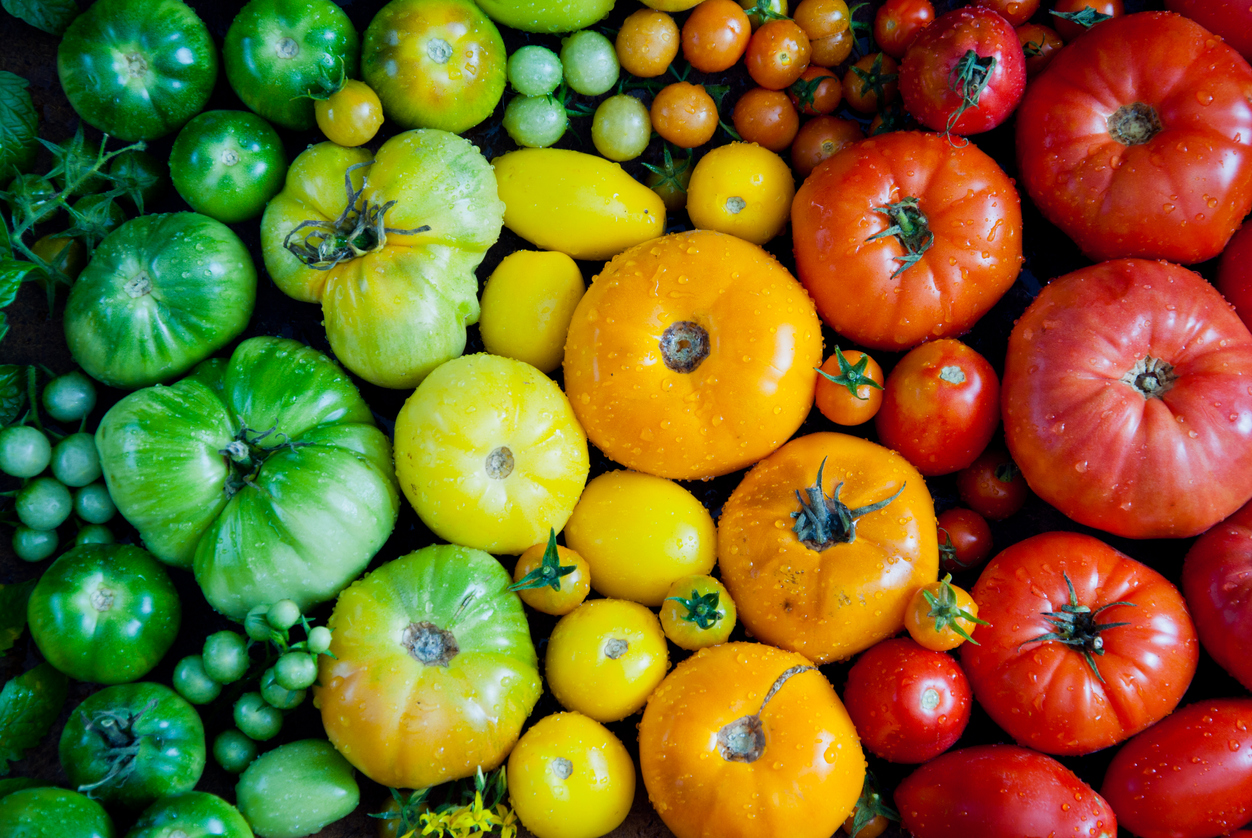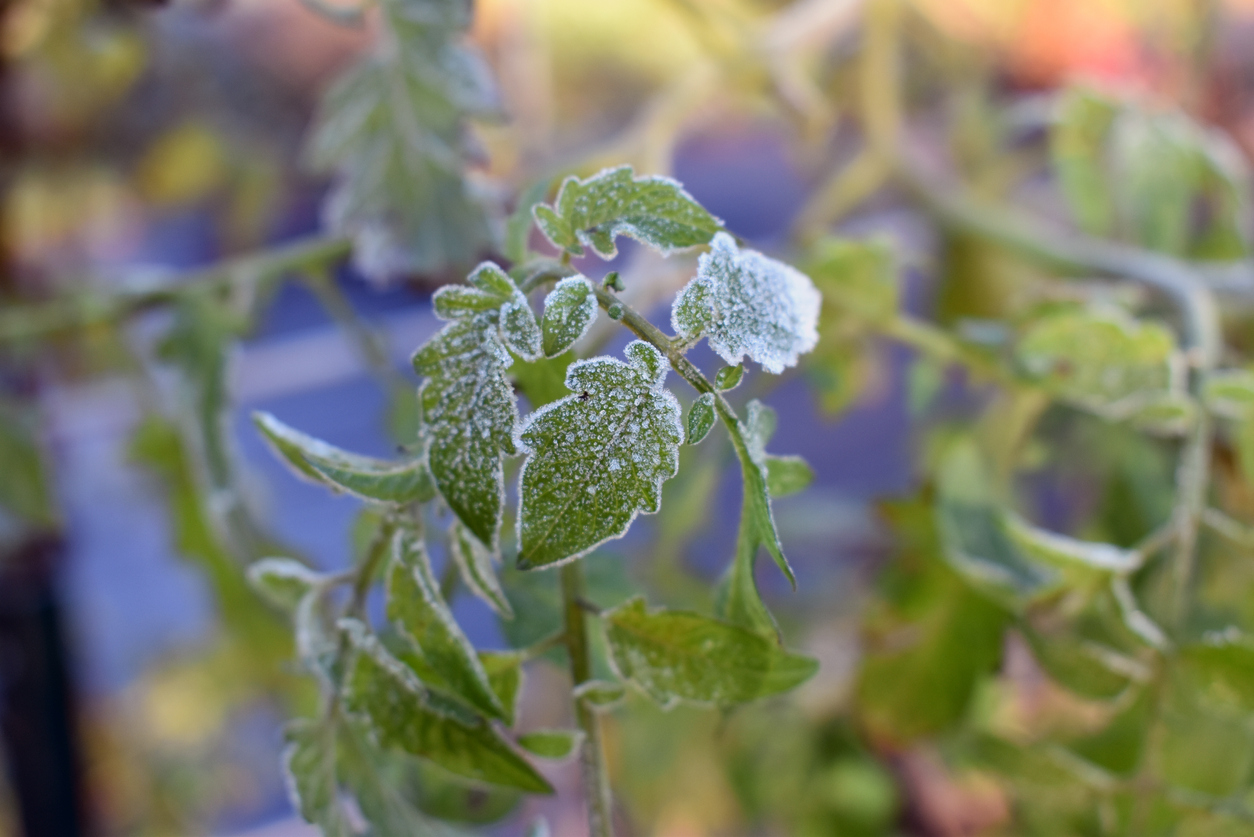

We may earn revenue from the products available on this page and participate in affiliate programs. Learn More ›
Q: I’m new to gardening, and my tomato plants are doing pretty well. What’s your best advice about when to pick tomatoes: when they’re fully ripe, almost ripe, or still green? How can I tell when they’re ready to pick?
A: Knowing when to pick tomatoes is an essential skill if you want to get the best flavor and quality from your backyard garden. Size and color alone are not reliable indicators of ripeness. Tomato variety, weather conditions, soil fertility, and other factors affect fruit coloration and ripening time. In fact, full color development is often delayed until well after the fruit is ready to pick. The good news is that there are several reliable indicators you can use to determine the right time to harvest your tomatoes.

Check the days to maturity for the specific tomato varieties you’re growing.
A good starting point in determining when to pick tomatoes is the number of days to harvest listed on the seed packet or plant tag. With thousands of tomato varieties of all shapes, colors, and sizes, ripening times can vary from as few as 60 days to more than 100 days.
The “days to harvest” countdown begins on the day the seedling is planted in the garden, not on the day the seed is sown. Seed germination takes about a week, then the seedling should be allowed to grow at least two sets of true leaves before it’s ready to transplant. So if you grow your plants from seeds, seedling production adds as much as a month to the total time to maturity.
It’s usually best to let tomatoes ripen fully on the vine.
In an emergency it is fine to pick mature green tomatoes and let them ripen indoors, off the vine. Grocery store suppliers typically harvest tomatoes when they are just beginning to show color so the fruits can ripen in transit. But the best flavor quality comes from vine-ripened tomatoes. So, what qualifies as ripe?
Green tomatoes lighten in color after reaching their full size, indicating the start of the ripening process. Around the time the color is halfway developed, the fruit seals itself off from the main vine. At this point the tomato ripens the rest of the way without resources from the plant. It can be picked off the vine without losing nutritional value, flavor or quality.
Gardeners are often reluctant to harvest slightly green tomatoes, thinking that they will not produce a good flavor. In reality, harvesting at any point past the half-color stage allows more control over the ripening process without losing that homegrown flavor.
Firmness is a good indication of a fully ripe tomato.
Firmness is an excellent way to judge whether a tomato is ready to pick. Fully red-ripe tomatoes should feel slightly tender, but not soft, under a gentle squeeze. That is when they are perfectly ready to eat. If you are harvesting at the half-color stage, the fruit should feel firm but not hard.
Tenderness develops as the color and aroma mature, either on the vine or on the kitchen counter. The fruit may have no smell at first, but when they are ready to eat, tomatoes produce a strong sweet, earthy fragrance from the stem end. Since tomatoes can be any number of colors when they are ripe and ready to eat, feel and smell are some of the best ripeness indicators.

There are situations in which you don’t want to wait for tomatoes to ripen before picking them.
Temperatures at and above 90 degrees Fahrenheit are not great for most tomato varieties. High temperatures can make tomatoes more susceptible to sunscald and other heat-related problems. Plus, lycopene and carotene, the red and orange pigments that give tomatoes their color, cannot develop properly in hot weather. If your tomatoes have gained their size and won’t develop color, pick them and let them finish ripening in your air-conditioned kitchen.
If season-ending cold weather or severe storms threaten your crop, you can salvage green ripe tomatoes by picking them early. Any tomatoes that have already reached their mature size and turned light green are considered green ripe. Green tomatoes are good for a variety of recipes, like fried green tomatoes or green tomato salsa. Or, at this stage they can still ripen indoors. Place them in a paper bag with ethylene-producing fruits such as bananas or apples to assist ripening.

The best way to harvest tomatoes is with a sharp, clean pair of pruning shears or garden clippers.
The pointy green “leaves” that fan out at the top of the tomato are the calyx that once protected the flower bud. Some tomatoes easily separate from the plant, leaving their calyx behind. Others break away with the calyx and a short stem at a slightly swollen joint where the stem connects to the vine. A few types of tomatoes break away easily only when they are overripe, and should instead be harvested by cutting them off the plant.
If you encounter any resistance at the stem while harvesting tomatoes, avoid damaging the plant or the fruit. Use a clean, sharp pair of pruning shears or garden clippers to cut the ripe tomato from the vine. Hold the tomato with one hand and cut the stem just above the fruit with the other.
